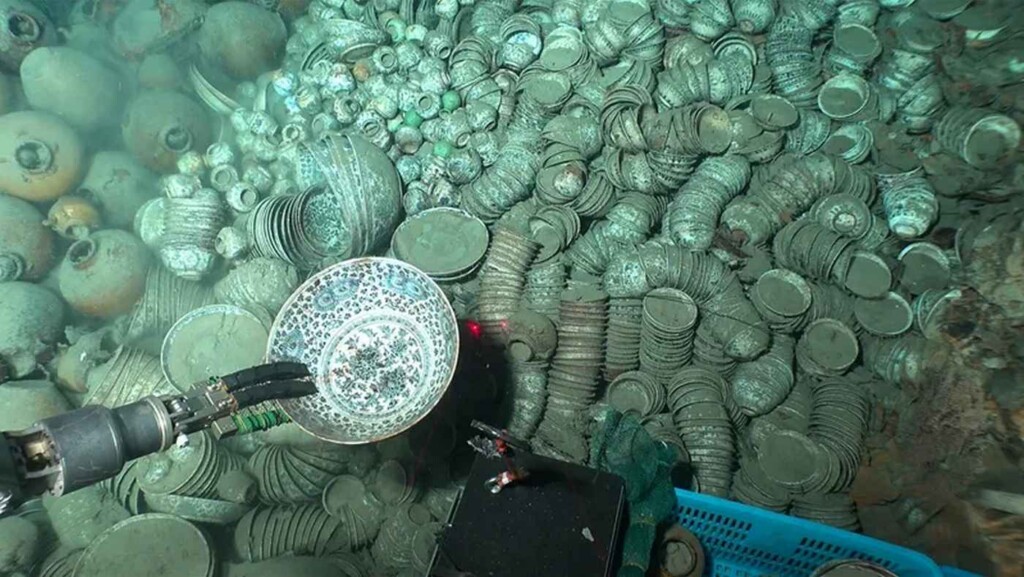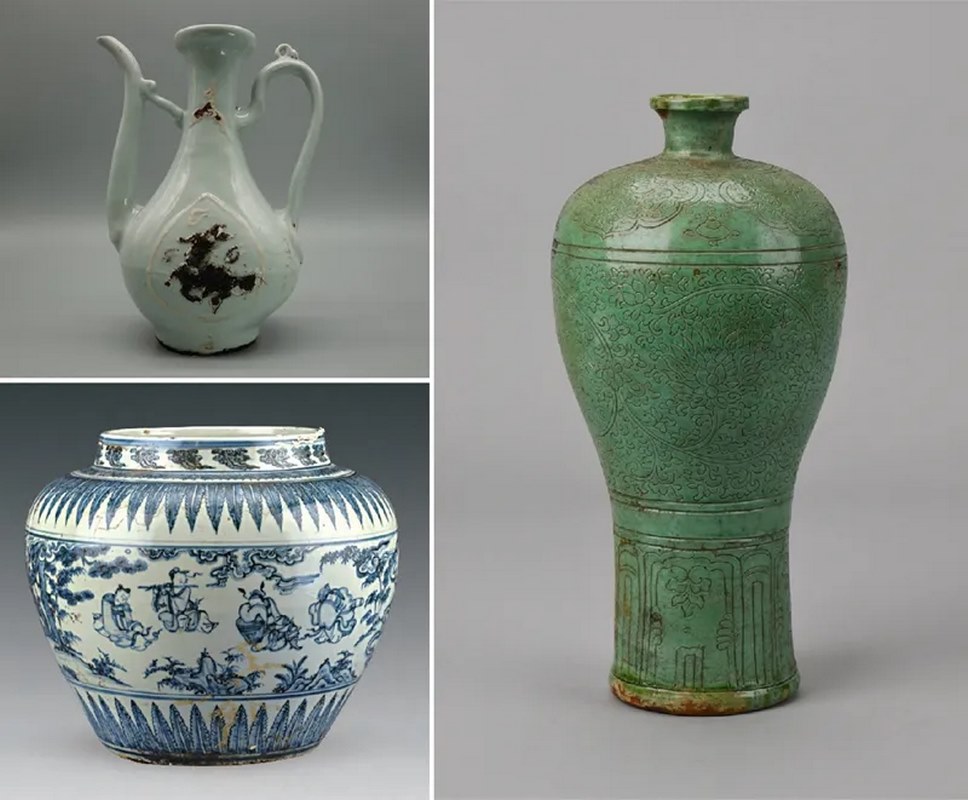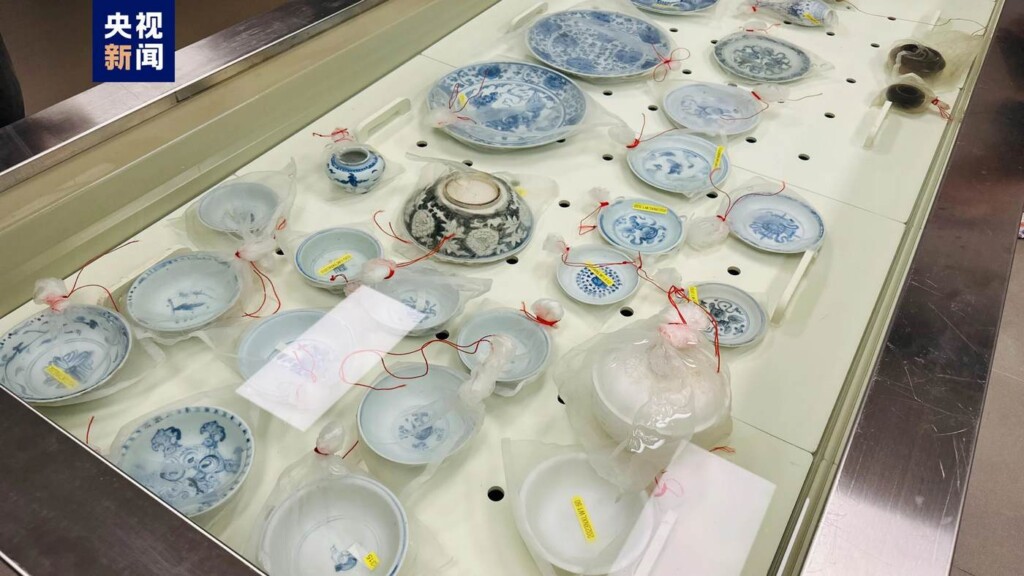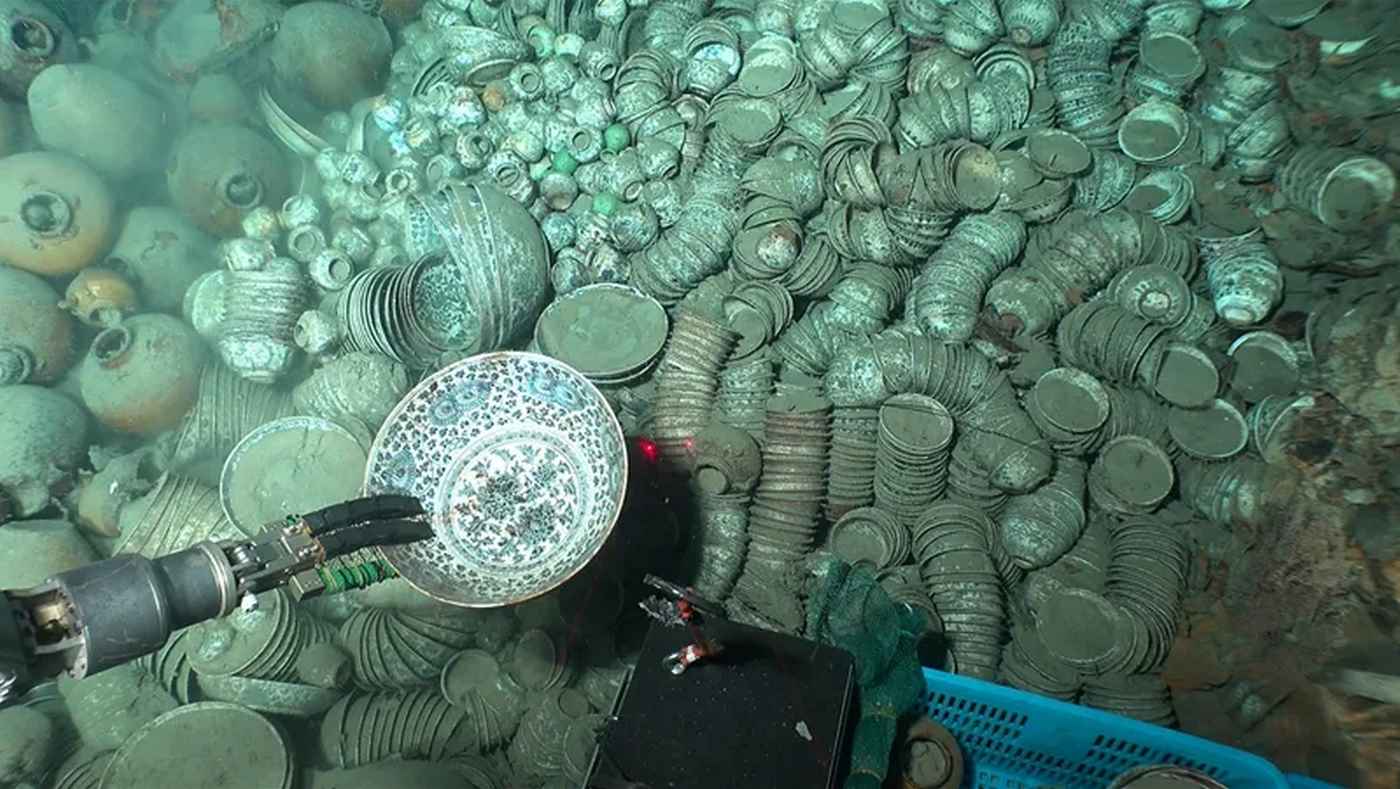
More than 900 artifacts have been retrieved from two ancient shipwrecks discovered in the South China Sea, the National Cultural Heritage Administration of China (NCHA) said Thursday.
Consisting of piles and piles of porcelain, along with other pottery works, copper pieces, ebony lumber, and animal parts, the wrecks are a testament to the vast maritime trading network overseen by the Ming Dynasty.
The excavation, conducted from 2023 to 2024, was a joint effort by a pair of research institutes and a local museum on Hainan Island, and involved sending manned and unmanned submersibles down to collect the relics and document the wrecks.
The archaeologists believe that the shipwrecks both date to different periods of the Ming Dynasty, (1,368-1,644) either side of the year 1,500 CE.
In the long history of China, the most important dynasties were always interrupted by intervening periods of foreign conquest and strife. The Ming Dynasty was born out of fire and rebellion, and when it centralized control it took Chinese civilization to many of the heights it’s most known for.


A new era of monumental architecture was rung in with Beijing’s Forbidden City, while the iconic, blue and white Ming Dynasty porcelain was coveted all over the world, as these shipwrecks bear witness.
Made by using particular forms of clay like kaolinite, alabaster, or feldspar, porcelain is painted with mineral pigments, glazed, and baked in kilns at over 2,000°F. It is one of three forms of pottery and is the most difficult and highly valued for its translucence, strength, and the skill level required to make it.
MORE UNDERWATER TREASURES: 76,000 Gold and Silver Artifacts Recovered from Chinese River Charts Infamous 17th Century Warlord’s Conquests
10,000 items in total were documented, one-tenth of which were pulled to the surface. The excavators also scanned the wrecks with 3D laser scanners to allow for more study on land.
MEANWHILE ON LAND: Stunning Tomb With Skylights in a Carved Chamber Uncovered From the Jin Dynasty – LOOK
The two ships lie 12 miles apart, around 90 miles off the coast of Hainan. The cargo was probably loaded in Jingdezhen and intended for export. By the 14th century, Jingdezhen had become the largest center of production of Chinese porcelain.
The NCHA said the excavation was a landmark effort by the nation’s maritime archaeology programs.
SHARE This Incredible Discovery Off The Coast China With Your Friends…




















